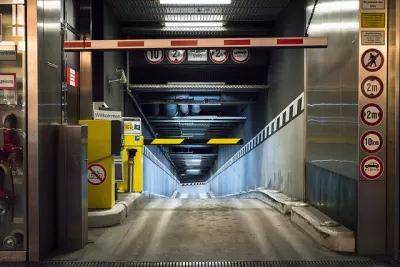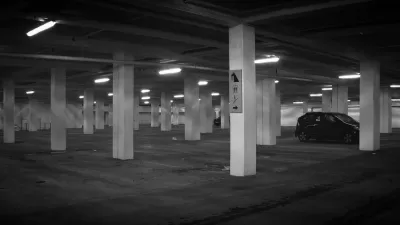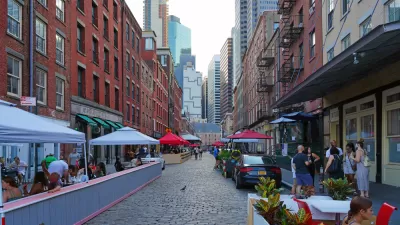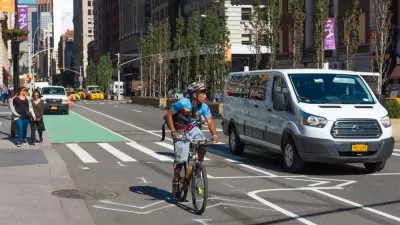Car condos are coming to North America's largest cities—first New York and now Toronto.

An article by Joshua Chong and Ivy Mak reports that a developer has plans to build a new "penthouse" for cars: "Toronto-based real estate brokerage firm Metropolitan Commercial Realty recently announced plans to build what it describes as the city’s first-ever 'car condo.'"
The development team, known as ToyBx, is still working through the planning and zoning approvals process for 180,000-square-foot facility housing boast 195 units and 39 penthouse suites. "Units start from 565 sq. ft. and can house a minimum of four cars," according to the article.
The story about Toronto's condos for cars development is the second example of car condos shared by Planetizen in recent months. In August, the news was about a developer in New York City converted a garage on the Upper East Side into a condominium for cars, asking $350,000 for a spot.
Both articles put this news in the context of the pandemic-related upheaval in urban real estate markets—though with slight differences in the examples. In New York, the developers used adaptive reuse to make a new kind of space for more cars after many residents and the daytime office population moved away from the city during the pandemic or bought cars for the first time.
In Toronto, the developer of a new building has responded to criticism about the symbolism of the development (more space for cars while many are struggling to afford housing for humans) by arguing that the development site isn't zoned for residential development.
"I'm sure we're going to get, you know, some people pushing back because of the hard economic times due to COVID, but we're real estate developers and investors and we're filling the void in the market," says Ming Zee, president of Metropolitan Commercial Realty Inc., is quoted as saying in the article by Chong and Mak.
FULL STORY: Toronto’s first ever car condo is coming to the city and some housing experts are calling it ‘disrespectful’

Study: Maui’s Plan to Convert Vacation Rentals to Long-Term Housing Could Cause Nearly $1 Billion Economic Loss
The plan would reduce visitor accommodation by 25,% resulting in 1,900 jobs lost.

North Texas Transit Leaders Tout Benefits of TOD for Growing Region
At a summit focused on transit-oriented development, policymakers discussed how North Texas’ expanded light rail system can serve as a tool for economic growth.

Why Should We Subsidize Public Transportation?
Many public transit agencies face financial stress due to rising costs, declining fare revenue, and declining subsidies. Transit advocates must provide a strong business case for increasing public transit funding.

How to Make US Trains Faster
Changes to boarding platforms and a switch to electric trains could improve U.S. passenger rail service without the added cost of high-speed rail.

Columbia’s Revitalized ‘Loop’ Is a Hub for Local Entrepreneurs
A focus on small businesses is helping a commercial corridor in Columbia, Missouri thrive.

Invasive Insect Threatens Minnesota’s Ash Forests
The Emerald Ash Borer is a rapidly spreading invasive pest threatening Minnesota’s ash trees, and homeowners are encouraged to plant diverse replacement species, avoid moving ash firewood, and monitor for signs of infestation.
Urban Design for Planners 1: Software Tools
This six-course series explores essential urban design concepts using open source software and equips planners with the tools they need to participate fully in the urban design process.
Planning for Universal Design
Learn the tools for implementing Universal Design in planning regulations.
Ascent Environmental
Borough of Carlisle
Institute for Housing and Urban Development Studies (IHS)
City of Grandview
Harvard GSD Executive Education
Toledo-Lucas County Plan Commissions
Salt Lake City
NYU Wagner Graduate School of Public Service





























